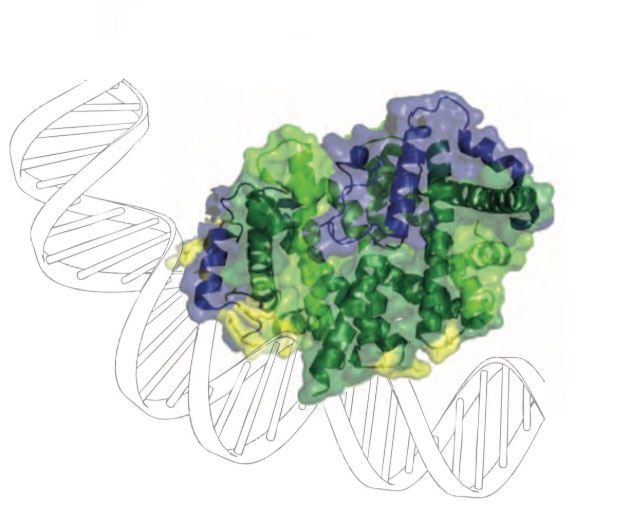Themed Curation Project

Fanconi Anemia
Fanconi anemia (FA) is a genomic instability syndrome that predisposes afflicted individuals to congenital abnormalities, bone marrow failure and cancer. The most common malignancies found in FA patients are acute myeloid leukemia as well as squamous cell carcinomas of the head, neck and female genitalia. Fanconi anemia occurs in 1 in 160,000 individuals worldwide and while it is relatively uncommon, the incidence is more prevalent among specific ethnic groups. FA is caused by a mutation to any one of the 22 FANC genes with more than 80% of the causative mutations found within the FANCA, FANCG or FANCC genes. Each gene of the FA pathway encodes for members of the FA/BRCA DNA damage repair pathway. The main function of this pathway is to remove DNA inter-strand crosslinks, which are lesions that interfere with DNA replication and gene transcription. The presence of inter-strand crosslinks triggers the onset of the FA pathway. Once triggered, the FA complex E3 monoubiquitinates the ID complex, comprised of FANCD2 and FANCI proteins. This in turn triggers the ID complex to form foci at the sites of the nuclear lesions and recruit/interact with numerous other FA proteins and non-FA proteins involved in signalling or repairing the lesions.
BioGRID curators identified key genes involved in Fanconi anemia and curated their corresponding molecular interactions from the scientific literature. The different proteins on the FA list were further categorized into the following functional groups: FA core complex, FANC ID complex, FA complex interacting protein, Ubiquitin Proteasome System, DNA repair, Kinase/Phosphatase, or Other. This Fanconi anemia project page allows users to explore the FA gene list, as well as any relevant protein interactions, post translation modifications (PTMs) and chemical interactions.
The Fanconi Anemia curation project is on-going and will be updated each month. If you notice errors or missing interactions/publications in this dataset, or otherwise wish to contribute to this project, please contact us at support@thebiogrid.org. All Fanconi anemia database records are freely available for download from links within this project.